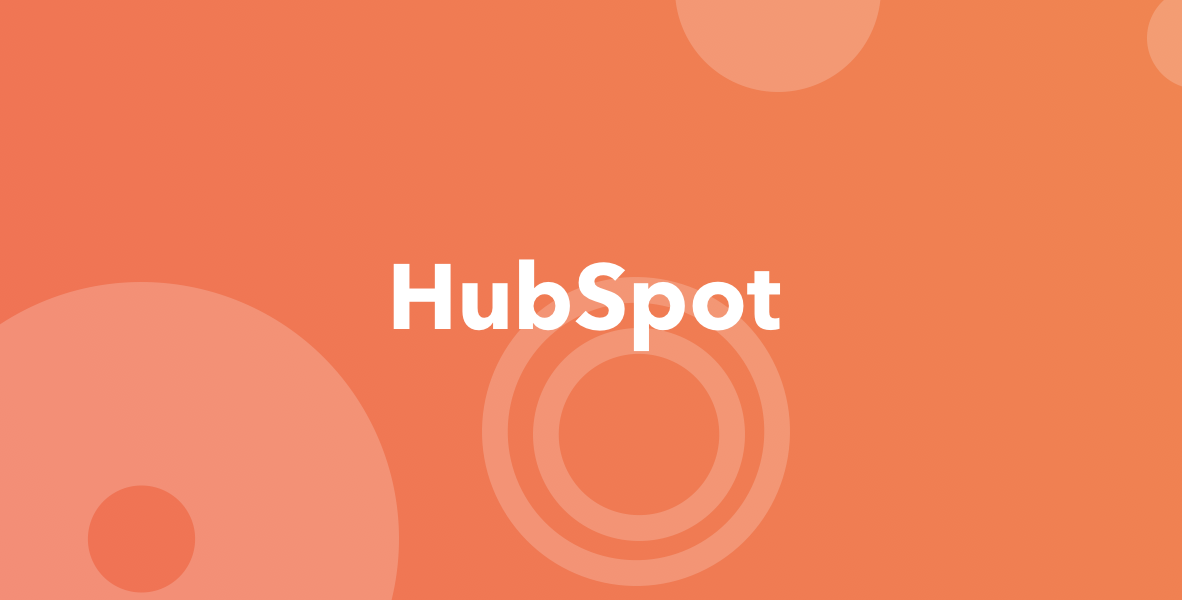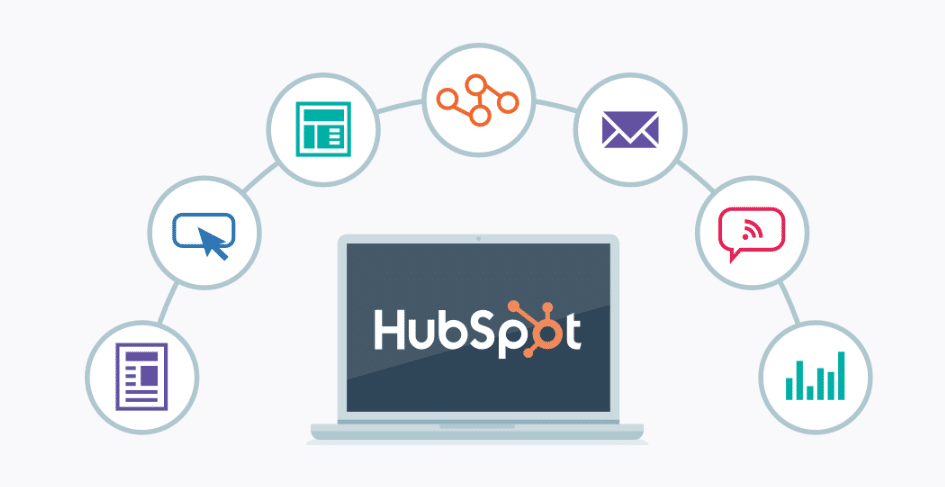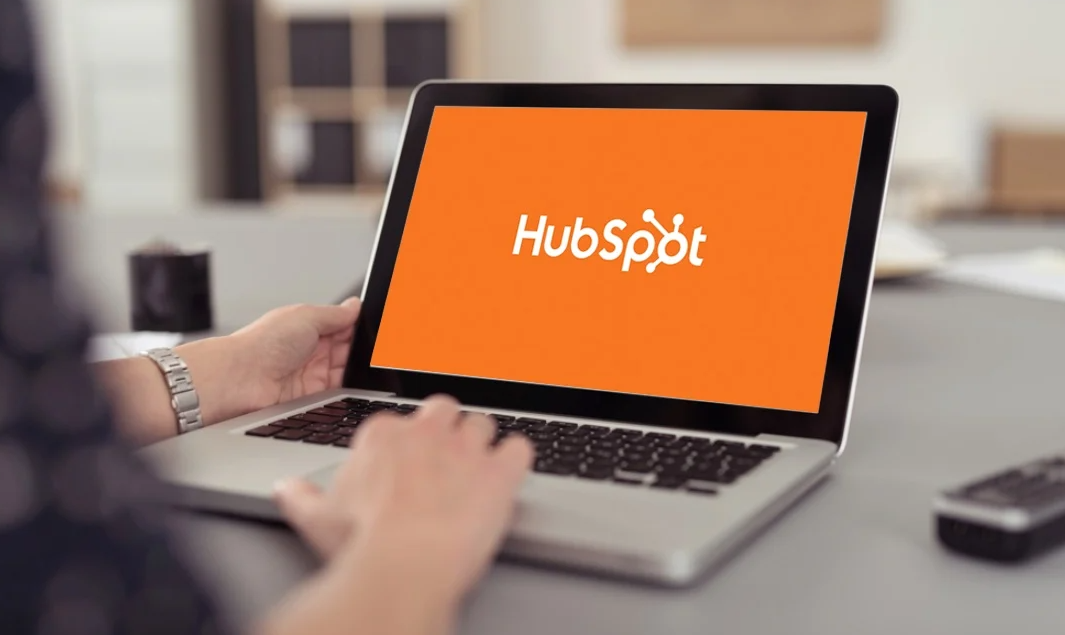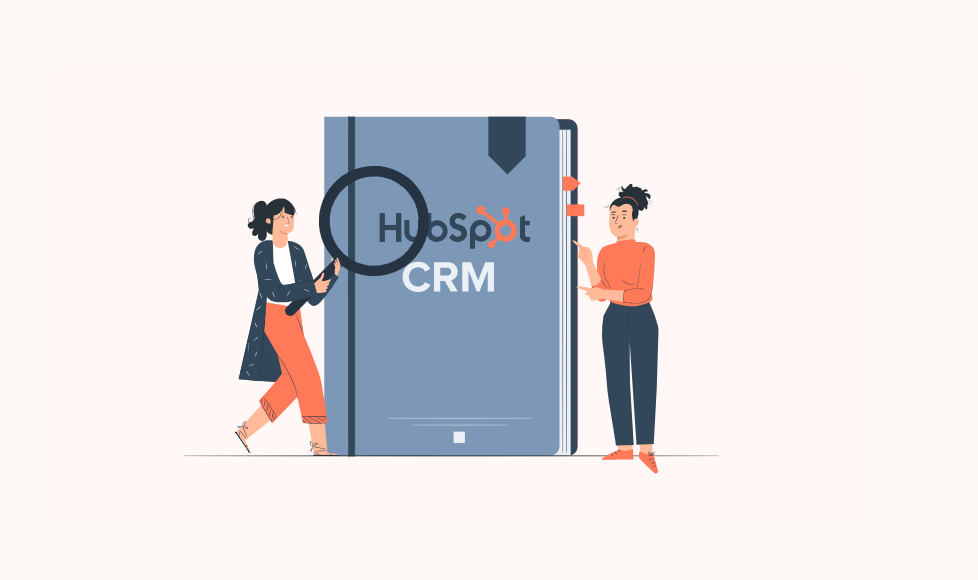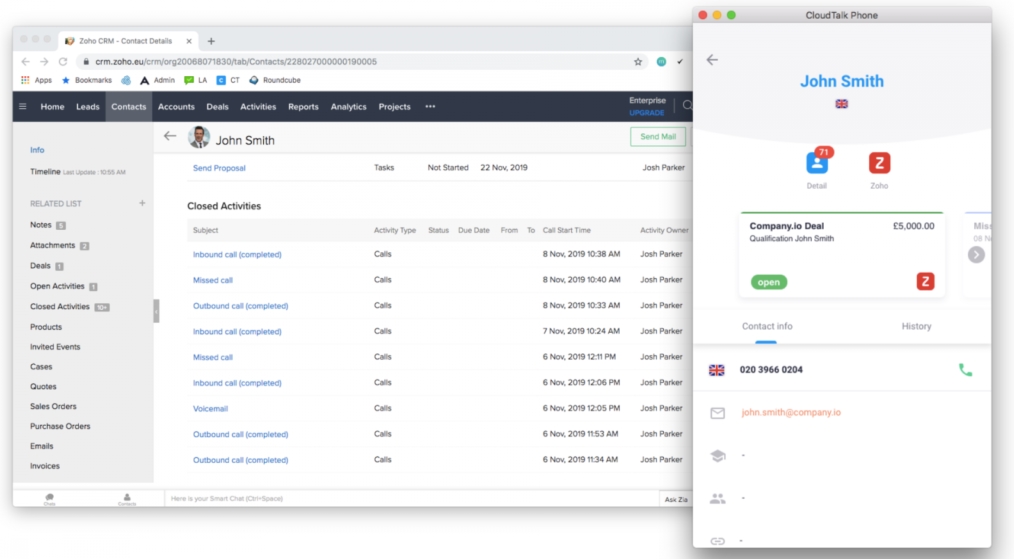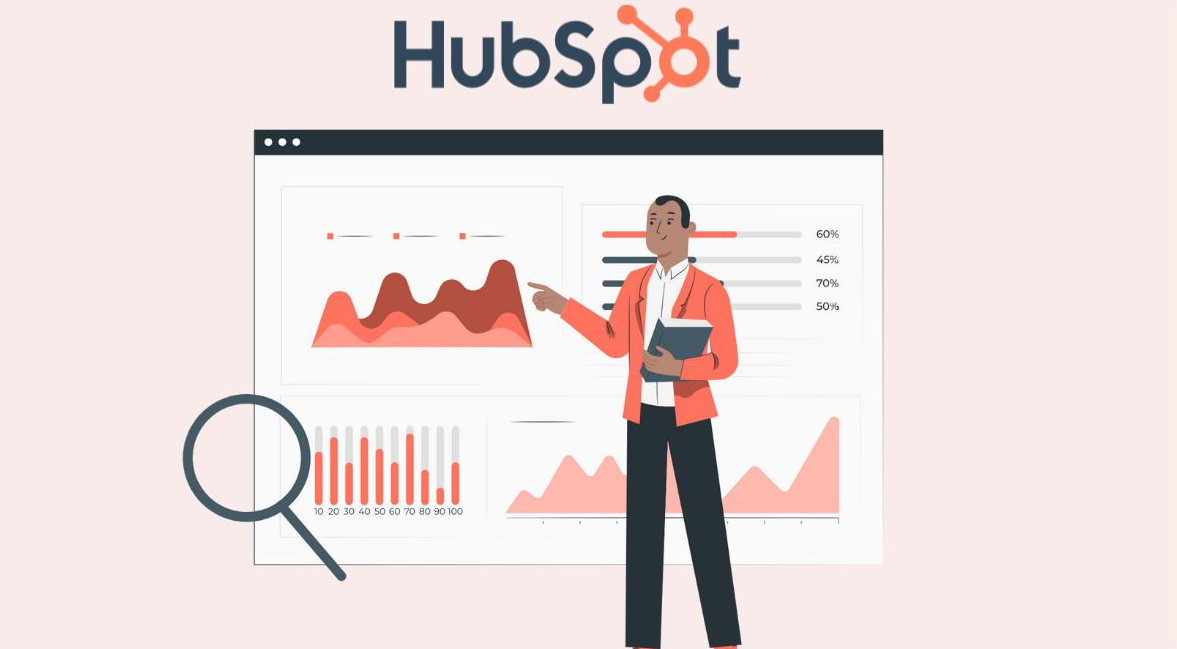Can Hubspot Replace Salesforce?
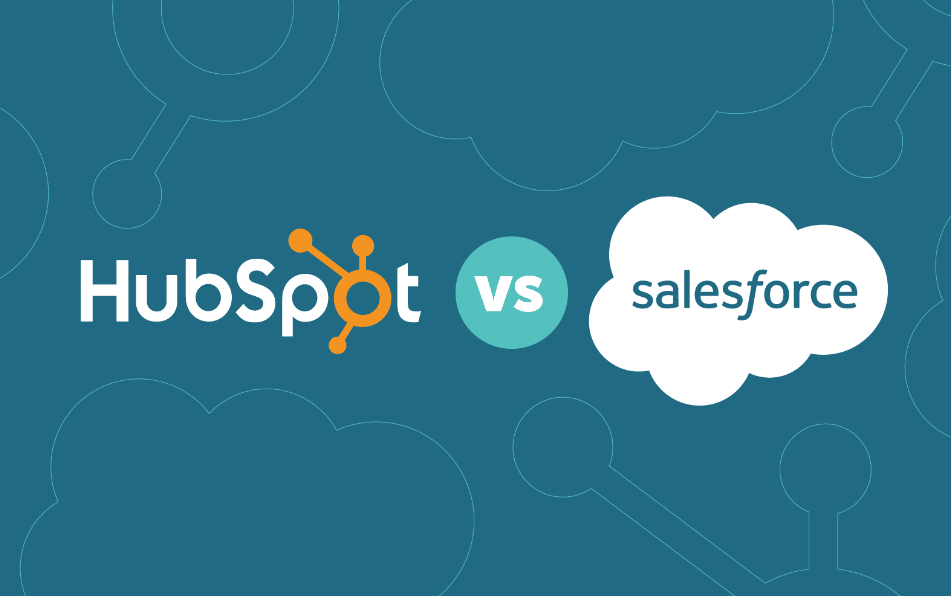
Anúncios
There’s no question that Hubspot and Salesforce are two of the most popular CRMs on the market. But which one is better for your business? It depends on a few factors.
If you’re looking for a CRM with powerful features and customization options, Salesforce is the clear winner. However, if you’re looking for an affordable CRM with a user-friendly interface, Hubspot may be a better option.
HubSpot vs. Salesforce
Salesforce and Hubspot are both CRM (customer relationship management) tools. They are both great for managing customer data, but they have different features. Hubspot is more focused on marketing, while Salesforce is more focused on sales.
So, can Hubspot replace Salesforce?
It depends on your business needs. If you need a CRM tool that is primarily focused on marketing, then Hubspot could be a good replacement for Salesforce.
However, if you need a CRM tool that is primarily focused on sales, then Salesforce would be a better option.
Anúncios
Hubspot Vs Pardot
When it comes to HubSpot vs Pardot, there are a few key differences to consider. HubSpot is known for its powerful inbound marketing capabilities, while Pardot focuses on sales enablement and lead management. Both platforms offer a wide range of features and integrations, so choosing the right one for your business depends on your specific needs and goals.
Here’s a closer look at how HubSpot and Pardot compare:
Inbound marketing: As an inbound marketing platform, HubSpot offers everything you need to attract, engage, and delight customers. With features like SEO tools, social media monitoring, email marketing, and lead nurturing workflows, HubSpot gives you everything you need to drive results.
Sales enablement: Pardot is designed to help sales teams close more deals by streamlining processes and providing valuable insights. Features like lead scoring and grading help prioritize leads, while built-in CRM integration ensures that data is always up-to-date. Automated emails and reminders keep the sales team on track throughout the buyer’s journey.
Lead management: BothHubSpot andPardot offer robust lead management capabilities. With features like contact forms, web tracking, and Lead Flows (HubSpot) or Engagement Studio (Pardot), it’s easy to capture leads from your website or blog. Once captured, you can segment leads based on criteria like demographics or behavior using lists (HubSpot) or segments (Pardot).
You can also automate lead nurture workflows with drip campaigns to move leads through the funnel until they’re ready to buy.
Salesforce Vs Hubspot Pricing
The cloud-based Salesforce CRM is one of the most popular and well-known CRMs on the market. HubSpot Sales, on the other hand, is a relative newcomer that’s quickly making a name for itself as a powerful sales tool. So which one is right for your business?
When it comes to pricing, both Salesforce and HubSpot offer subscription plans that scale to fit the needs of any size business. However, there are some key differences between the two that could make one more appealing than the other.
Salesforce offers three main pricing tiers: Enterprise, Unlimited, and Developer.
The Enterprise plan starts at $75 per user per month and includes unlimited custom objects and apps, as well as access to all of Salesforce’s features. The Unlimited plan starts at $150 per user per month and removes certain data storage limits, while the Developer plan is designed for businesses that need customization options not available on the other two plans. It starts at $250 per user per month but requires a minimum of five users.
HubSpot Sales also has three pricing tiers: Starter, Professional, and Enterprise. The Starter plan is free for up to 1 million contacts (with no daily limit) and includes core sales features like email tracking and templates. The Professional plan starts at $50 per user per month when billed annually (or $100 monthly) and adds advanced features like automated sequences and meeting scheduling.
And finally, the Enterprise plan gives you everything HubSpot Sales has to offer starting at $400 per month when billed annually (or $800 monthly). It should be noted that this price does not include access to any of HubSpot’s marketing or service tools – only sales features are included in this price point.
So which CRM is right for you?
If you’re looking for a comprehensive sales solution with plenty of customization options, then Salesforce is probably your best bet.
Anúncios
Does Hubspot Use Salesforce
Salesforce and HubSpot have a long-standing partnership that provides customers with best-in-class sales and marketing solutions. The integration between Salesforce and HubSpot gives users the ability to track interactions across the customer journey, from first contact to closed deal.
The integration between these two powerful platforms provides sales and marketing teams with a 360 degree view of their customers, allowing them to nurture relationships and close deals faster.
In addition, the integration allows for bi-directional synchronization of data, meaning that changes made in one system are automatically reflected in the other.
For example, when a lead is created in HubSpot, it is automatically pushed into Salesforce so that sales reps can follow up. Similarly, when a deal is won in Salesforce, this information is pushed back into HubSpot so that marketing teams can see which campaigns are driving results.
The bottom line is that the integration between HubSpot and Salesforce provides users with more insights into their customers so they can better nurture relationships and drive results.
Salesforce Or Hubspot Which is Bigger
Salesforce and Hubspot are two of the biggest CRM (customer relationship management) software providers in the world. But which one is bigger?
In terms of market share, Salesforce is the clear winner.
It holds about 19% of the CRM market, while Hubspot has just 2%.
In terms of revenue, Salesforce also comes out on top. In 2018, it generated $10.48 billion in revenue, compared to Hubspot’s $625 million.
So it’s clear that Salesforce is the bigger company in terms of both market share and revenue. But that doesn’t mean that Hubspot isn’t a force to be reckoned with – it’s still one of the fastest growing CRM companies around.
Salesforce Vs Hubspot Pros And Cons
Salesforce and Hubspot are two of the most popular CRM (customer relationship management) platforms on the market. Both have their pros and cons, but which one is the best for your business? Let’s take a closer look at each platform to see which one comes out on top.
Salesforce Pros:
– Salesforce has been around longer than Hubspot, so it has more features and integrations.
– Salesforce is better for businesses that need a more robust CRM solution.
It can be customized to fit your specific business needs.
– Salesforce offers a free trial, so you can try it before you buy it.
Hubspot Pros:
– Hubspot is less expensive than Salesforce, so it’s a good option for small businesses or startups that are on a budget.
– Hubspot is easier to use than Salesforce, so it’s ideal for businesses that don’t want to spend a lot of time training employees on how to use the CRM platform.
– Hubspot offers a wide variety of integrations, so you can connect it with other software platforms that your business uses.
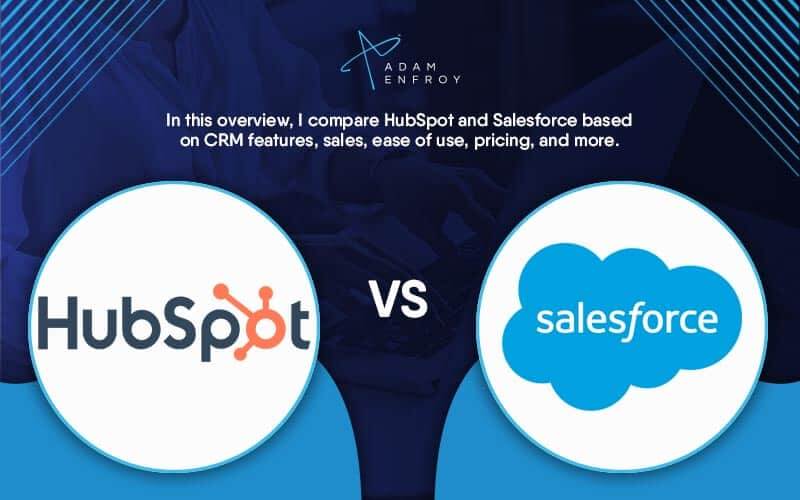
Credit: www.adamenfroy.com
Does Hubspot Compete With Salesforce?
Salesforce is a popular CRM (customer relationship management) software. HubSpot is a popular inbound marketing software. So, do these two tools compete with each other?
The answer is yes and no. They both offer different features that can be used to manage customer relationships. However, they can also be used together to create a complete picture of the customer journey from awareness to purchase.
Salesforce provides more traditional CRM features such as contact management, sales force automation, and opportunity management. These features help sales teams keep track of their interactions with customers and prospects, automate repetitive tasks, and manage opportunities throughout the sales pipeline.
HubSpot’s main focus is on inbound marketing, but it also includes some powerful CRM features.
For example, HubSpot’s contact management system lets you keep track of your contacts’ activity across all channels (email, social media, website visits, etc.), so you can see which interactions are most likely to lead to a sale. In addition, HubSpot’s Deals tool helps you track progress through the sales pipeline and close more deals faster.
So while Salesforce and HubSpot offer different sets of features, they can actually complement each other quite well.
Used together, they provide a comprehensive view of the customer journey from beginning to end.
Which is Bigger Salesforce Or Hubspot 2022?
Salesforce is the bigger company, but HubSpot is growing faster.
Salesforce was founded in 1999 and went public in 2004. Today, it has a market capitalization of $120 billion and annual revenue of $17 billion.
HubSpot was founded in 2006 and went public in 2014. Today, it has a market capitalization of $15 billion and annual revenue of $2 billion.
So far, Salesforce has been the more successful company.
But HubSpot is growing much faster. In the past year, HubSpot’s revenue growth was nearly five times that of Salesforce’s. And analysts expect HubSpot to continue to outgrow Salesforce going forward.
It’s possible that HubSpot could catch up to Salesforce in size within a few years. But for now, Salesforce remains the bigger company.
Which is Bigger Salesforce Vs Hubspot?
Salesforce is one of the most popular CRMs on the market today. HubSpot is a popular marketing automation tool. But which one is bigger?
In terms of overall revenue, Salesforce is the clear winner. In 2018, they generated $13.28 billion in revenue compared to HubSpot’s $890 million. However, it’s important to keep in mind that HubSpot was founded about 10 years after Salesforce and is still a much smaller company.
Looking at employee count, again Salesforce comes out ahead with over 33,000 employees compared to HubSpot’s just over 3,000. Finally, when we look at market capitalization (the total value of all shares of a company), Salesforce comes out on top once again with a valuation of over $100 billion while HubSpot clocks in at around $9 billion.
So there you have it – in every metric that matters, Salesforce is the bigger company than HubSpot.
Is Hubspot Easier Than Salesforce?
Salesforce and HubSpot are both CRM (customer relationship management) software. They are both powerful tools that can help businesses manage their customer data, but they have different features and functionality.
HubSpot is easier to use than Salesforce because it has a simpler interface and requires less training to get started.
However, Salesforce is more customizable and offers more features than HubSpot. So, it really depends on your needs as to which CRM would be better for your business.
Conclusion
Salesforce and Hubspot are both CRM (customer relationship management) software. They are similar in that they both help companies track and manage customer data. However, there are some key differences between the two platforms.
Hubspot is less expensive than Salesforce, and it offers more features for marketing and sales automation. Additionally, Hubspot integrates with more third-party applications than Salesforce does. For these reasons, Hubspot may be a better option for small businesses than Salesforce.
